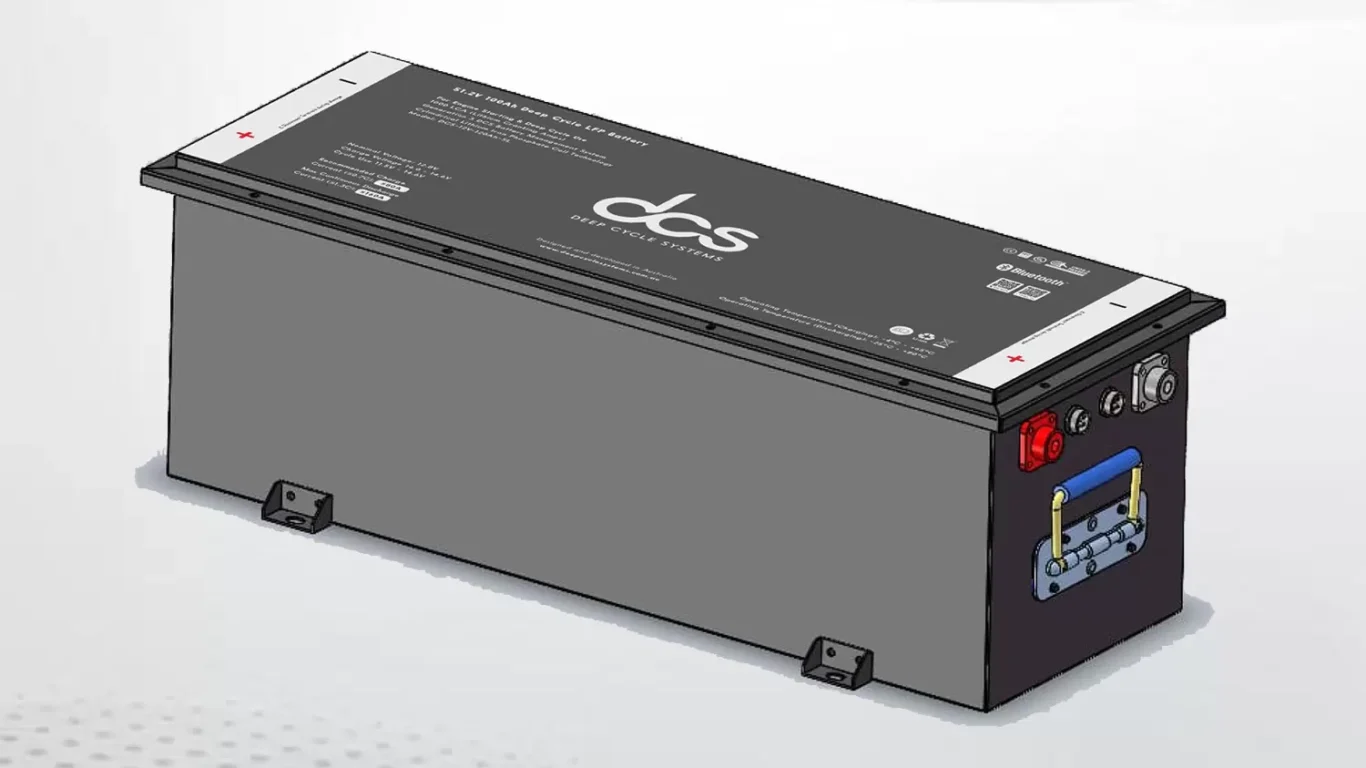The Potential of Energy Storage with 48 Volt Lithium Battery

Energy storage has always been crucial in the world of renewable energy. As we move towards a more sustainable future, the demand for efficient and reliable energy storage solutions is on the rise. This is where 48 Volt Lithium Battery come into play. These advanced batteries are emerging as the frontrunners in the energy storage industry, promising to unlock the full potential of renewable energy sources. With their high energy density, longer lifespan, and cost-effectiveness, 48-volt lithium batteries are revolutionising how we store and utilise energy.
Efficient Power Backup Solutions
In the dynamic landscape of modern energy requirements, the emergence of 48-volt Lithium Batteries as efficient power backup solutions represents a significant advancement. These batteries are meticulously engineered to provide a seamless and reliable energy supply, particularly in power outages or when supplemental energy is required. Their inherent efficiency stems from lithium technology’s high energy density, allowing for a more compact and powerful energy storage unit compared to traditional alternatives.
Within the context of power backup, the ability of 48-volt Lithium Batteries to offer swift charging capabilities becomes particularly advantageous. This ensures that energy systems can be quickly replenished, thus maintaining continuity in power supply with minimal downtime. Furthermore, their ability to discharge energy at a high rate makes them an ideal candidate for scenarios that demand a sudden influx of power, providing an immediate response to emergency energy requirements.
The application of these batteries extends beyond just emergency power backup; they are also pivotal in balancing the grid during peak load times. By storing excess energy during off-peak hours and releasing it during peak demand, these batteries help stabilise the grid, thereby enhancing the overall efficiency of the energy system.
The Versatility and Durability
The standout attributes of 48-volt Lithium Batteries encompass their remarkable versatility and durability, substantially enhancing their application range and lifecycle. These batteries have been engineered to withstand harsh operational conditions, enduring wide temperature fluctuations and physical stress, which is a testament to their robustness. This resilience ensures reliable performance over extended periods and minimises maintenance requirements, a crucial factor in both commercial and domestic environments where uninterrupted energy supply is paramount.
Equally impressive is the versatility of 48-volt Lithium Batteries. They are adeptly designed to serve many applications, from providing the backbone for renewable energy systems to acting as the primary power source in electric vehicles and backup power solutions. Their compact size and scalability allow them to be easily integrated into various energy systems, whether to support grid services or to empower off-grid applications. This adaptability makes them an invaluable asset in transitioning towards more sustainable energy practices, meeting diverse energy needs across different sectors.
The durable nature of 48-volt Lithium Batteries and their ability to be deployed in a wide range of energy scenarios underscores their significance in advancing energy storage technologies. By delivering reliable power in a versatile and robust package, these batteries not only meet current energy demands but are also equipped to address future challenges, contributing to the resilience and efficiency of global energy systems.
Revolutionising Energy Storage with Battery Lithium 48v
The transition to Battery Lithium 48v is significantly transforming the energy storage landscape, offering an advanced and sustainable alternative to the traditional methods that have long dominated the sector. This shift is characterised by an emphasis on utilising lithium technology’s superior attributes, which include a higher energy density and swifter charging times, fundamentally altering how energy is stored and deployed. The move towards these batteries heralds a pivotal change, underpinned by the urgency to embrace cleaner energy solutions and the growing necessity for efficient, reliable power storage systems.
At the heart of this revolution is the leveraging of lithium’s inherent advantages, which contribute to enhanced performance and facilitate a reduction in carbon footprint, aligning with global sustainability goals. The adoption of 48-volt lithium batteries underscores a commitment to innovation in the pursuit of addressing contemporary and future energy challenges. This approach signifies progress in energy storage technology and reflects a broader societal shift towards energy resilience and sustainability.
By integrating these batteries into diverse applications, from residential energy systems to larger-scale industrial setups, the foundations are being laid for a future where energy storage is not a limiting factor but a facilitator of sustainable growth. The role of 48-volt lithium batteries in this transformation cannot be overstated, as they redefine the parameters of what is possible in energy storage, propelling the industry towards a cleaner, more efficient, and resilient future.
The Sustainable Future of Home Energy Storage
The sustainable future of home energy storage holds immense promise for revolutionizing the way we generate, store, and consume electricity in our homes. Here’s how:
Renewable Integration
Home energy storage systems enable seamless integration of renewable energy sources such as solar and wind power into residential electricity grids. By storing excess energy generated during periods of high production, homeowners can optimize their energy usage, reduce reliance on grid electricity, and lower their carbon footprint. This promotes the transition towards a more sustainable energy system powered by clean, renewable resources.
Grid Resilience
Home energy storage systems enhance grid resilience by providing backup power during grid outages or emergencies. By storing energy locally, homeowners can ensure uninterrupted power supply for critical appliances and essential services, such as lighting, refrigeration, and communication devices. This reduces dependence on centralized power infrastructure and enhances community resilience in the face of natural disasters or other disruptions.
Peak Load Management
Home energy storage systems help alleviate strain on the electricity grid by managing peak demand periods more effectively. By storing energy during off-peak hours when electricity is abundant and cheap, homeowners can reduce their energy costs and alleviate pressure on the grid during times of high demand. This promotes more efficient use of existing infrastructure and reduces the need for costly grid upgrades and expansions.
Energy Independence
Home energy storage systems empower homeowners to take control of their energy future and reduce dependence on external energy suppliers. By generating and storing their own electricity onsite, homeowners can hedge against rising energy prices, volatile utility rates, and geopolitical uncertainties. This promotes energy independence and empowers individuals and communities to become more self-reliant and resilient in the face of evolving energy challenges.
48Volt Batteries: The New Standard in Energy Storage
As the quest for sustainable and reliable energy solutions intensifies, 48-volt Lithium Batteries are increasingly recognised as the vanguard of energy storage technology. Their ascension to industry standard status is underpinned by a blend of superior attributes that starkly differentiate them from previous generations of storage solutions. The heart of their appeal lies in technological innovation and environmental stewardship, a pairing increasingly critical in today’s energy discourse.
These batteries’ inherent qualities, such as high energy density and a remarkably long lifespan, have catalysed a paradigm shift in how energy storage is perceived and implemented across various sectors. In commercial environments, where uninterrupted power supply is critical, and in residential settings, where efficiency and space-saving are prized, 48-Volt Lithium Batteries are proving indispensable. This broad applicability is a testament to their versatile design, capable of meeting diverse energy demands with unwavering reliability.
Environmental considerations are also pivotal to the rising dominance of 48-volt Lithium Batteries. Their adoption significantly reduces carbon emissions, aligning with global efforts to combat climate change. Furthermore, their energy storage and distribution efficiency complements the intermittent nature of renewable energy sources, thus facilitating a greener energy grid.
Maximising Efficiency with 48v Lifepo Battery
In energy storage, the emphasis on efficiency must be balanced. The introduction of 48v Lifepo Battery, specifically those utilising lithium iron phosphate (LiFePO4) technology, marks a significant advancement in this direction. The inherent characteristics of LiFePO4 batteries, including their remarkable energy density and low self-discharge rate, position them as a frontrunner in the quest for enduring and reliable power solutions. These batteries can retain energy over extended periods, ensuring a constant power supply without significant loss of efficiency.
Utilising 48-volt LiFePO4 batteries is a testament to the technological strides made in enhancing the performance of energy storage systems. Their robustness and ability to deliver consistent power output across a spectrum of conditions without depreciating in efficiency make them indispensable in scenarios where reliability is paramount. These attributes are particularly relevant in settings that demand a continuous power supply to prevent operational disruptions.
LiFePO4 technology also contributes to the environmental credentials of 48-volt lithium batteries. By embodying a more sustainable alternative to traditional battery technologies, they minimise the ecological impact of energy storage. The non-toxic nature of LiFePO4 and its longer lifecycle reduce the environmental burden associated with battery disposal and replacement, further cementing the role of 48-volt lithium batteries in fostering a more sustainable future in energy storage.
Boosting Grid Resilience
The introduction of 48-volt Lithium Batteries represents a significant step towards improving the resilience of power grids worldwide. These batteries, with their superior energy density and fast charging capabilities, provide stability and flexibility previously unattainable with traditional energy storage solutions. In an era where climate change and natural disasters pose increasing threats to power infrastructures, the importance of these batteries in safeguarding the continuity and reliability of energy supply cannot be overstated.
One fundamental way 48-Volt Lithium Batteries enhance grid resilience is through their ability to act as a distributed energy resource. By storing surplus energy during periods of low demand, these batteries enable stored power to be released back into the grid during peak times or outages, thereby reducing the risk of blackouts and improving grid stability. Furthermore, their use in microgrids and as part of decentralised energy systems highlights their potential to create a more resilient and adaptable energy network.
Integrating 48-volt Lithium Batteries into grid infrastructure also plays a crucial role in facilitating the integration of renewable energy sources. As renewable sources such as solar and wind power are intermittent, these batteries store excess energy generated during optimal conditions, ensuring a consistent and reliable energy supply even when renewable sources are not producing power. This capability supports grid resilience and accelerates the transition towards a more sustainable and environmentally friendly energy mix.
Enabling Cleaner and Greener Energy Solutions
As society gravitates towards a more sustainable energy paradigm, 48-volt lithium batteries emerge as a linchpin in this transformation. These batteries are instrumental in harnessing the potential of renewable energy sources, effectively storing surplus energy for subsequent use. This capability is a cornerstone in the quest to diminish dependence on fossil fuels, thereby contributing to a reduction in greenhouse gas emissions. The environmental credentials of 48-volt lithium batteries are further enhanced by their design and performance characteristics, which are inherently more sustainable than traditional battery technologies.
These batteries support optimising renewable energy utilisation by mitigating the intermittency of sources such as solar and wind. This ensures a more stable and consistent clean energy supply, an essential factor in driving greener energy solutions. Moreover, integrating 48-volt lithium batteries into energy systems facilitates a more efficient energy management process, enabling a more innovative and responsive grid that can adapt to varying energy demands while prioritising sustainability.
The role of 48-volt lithium batteries in advancing cleaner energy solutions extends beyond grid applications. In electric vehicles and other green technologies, these batteries are pivotal in reducing the carbon footprint of transportation and other sectors. The broad spectrum of applications and the environmental benefits of 48-volt lithium batteries underscore their significance in the global transition to a cleaner, greener, and more sustainable energy future.
Conclusion
As the world stands at the cusp of an energy revolution, the emergence of 48 Volt Lithium Battery signifies a monumental leap towards realising the aspirations of a more efficient, resilient, and sustainable energy future. Their unparalleled energy density, rapid charging times, and extended lifecycle underscore their pivotal role in the evolution of energy storage systems. This transformation transcends the enhancement of energy storage capabilities, heralding a shift in the global energy paradigm towards greater reliance on renewable sources and optimising energy consumption.
FAQs
What advantages does a 48 Volt Lithium Battery offer over traditional energy storage solutions?
A 48 Volt Lithium Battery presents several advantages over conventional options, including higher energy density, longer lifespan, and faster charging capabilities. These batteries are also more lightweight and compact, making them easier to install and integrate into various applications.
How does a 48V lithium battery unlock the potential for renewable energy utilization?
A 48V lithium battery enables better integration of renewable energy sources such as solar and wind power by providing a reliable and efficient energy storage solution. This allows for capturing and storing excess energy generated during peak production periods, which can be utilized during periods of low production or high demand.
In what ways does a 48V lithium battery enhance energy resilience and reliability?
The robust performance and long cycle life of a 48V lithium battery contribute to increased energy resilience and reliability. These batteries can provide backup power during grid outages or peak demand periods, ensuring uninterrupted operation for critical systems and appliances.
How can businesses and homeowners benefit from adopting 48V lithium battery technology?
Businesses and homeowners can benefit from 48V lithium batteries in various ways, including reduced energy costs, increased energy independence, and enhanced environmental sustainability. These batteries offer greater control over energy usage and enable users to optimize their energy consumption patterns, leading to long-term savings and a smaller carbon footprint.



